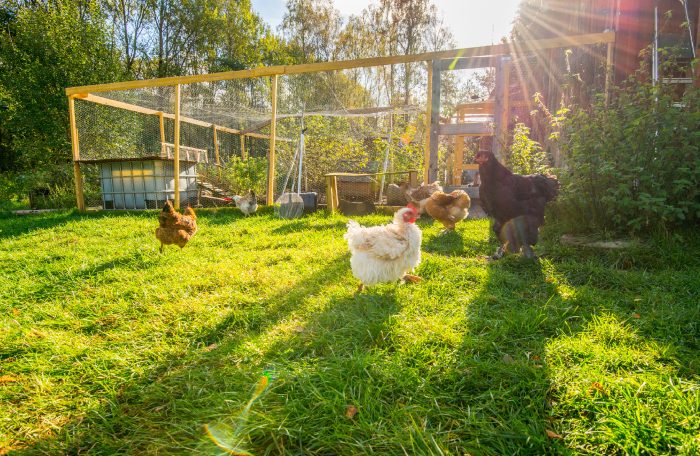
Financing Your Hobby Farm & Small Business Dreams
Date: March 28, 2025
With the rising cost of eggs and produce in grocery stores, many Manitobans are exploring hobby farming as a way to take control of their food supply. Whether it’s raising chickens, growing vegetables, or producing honey, starting a small-scale farm can be both rewarding, and financially beneficial. But is it truly a cost-saving move?
While raising chicken for eggs or cultivating a homegrown vegetable garden can reduce grocery bills, the upfront and ongoing costs of hobby farming should be carefully considered. From coops and feed to veterinary care and maintenance, expenses can add up quickly. However, for those willing to invest, hobby farming can be more than just a personal passion and food source—it can become a small business opportunity.
Some say there’s nothing quite like gathering eggs from your own backyard or enjoying a meal made with ingredients that you grew yourself. We can see how hobby farming brings a sense of purpose, peace, and pride that’s hard to beat.
The Rising Demand for Local Food
The recent U.S. tariffs on Canadian agricultural products have driven up the cost of imported goods, making locally sourced food more valuable than ever. While this presents challenges for large-scale farmers who rely on exports, it also creates opportunities for small-scale producers and hobby farmers to fill a growing market demand. As food prices continue to rise, consumers are increasingly looking for fresh, local alternatives, and hobby farmers may find themselves in a unique position to provide them.
Local food movements have been gaining traction in Canada, with consumers willing to pay a premium for farm-fresh eggs, organic vegetables, and ethically raised meat. Farmers’ markets, community-supported agriculture (CSA) programs, and direct-to-consumer sales through social media are all viable avenues for small-scale farmers to turn their passion into a profitable business.
Understanding the Costs of Hobby Farming
Before diving into hobby farming, it’s essential to evaluate both the costs and potential returns. Here’s a breakdown of some key expenses:
- Infrastructure – A well-built chicken coop, greenhouse, or garden setup requires an initial investment. Materials, fencing, and proper storage can all add up as start-up costs.
- Feed & Supplies – Chickens, goats, and other livestock require quality feed, supplements and bedding. For crops, soil amendments, seeds, and irrigation systems are necessary.
- Veterinary & Maintenance Costs – Even small-scale farming requires animal care and ongoing maintenance. Healthy livestock and proper crop management ensure long-term sustainability.
- Time & Effort – Hobby farming isn’t just about financial investment – it’s also about the time commitment. Caring for animals, planting, harvesting, and marketing products takes dedication.
Know the Rules Before You Sell
If you’re thinking of turning your hobby farm into a business—whether that’s selling eggs, vegetables, honey, or home-baked goods—it’s important to understand the food safety and business regulations that apply in your area.
We recommend checking with your municipal and provincial governing bodies—such as Manitoba Agriculture or the Canadian Food Inspection Agency—to ensure you’re meeting all necessary regulations and operating legally. It’s a key step to protect both your customers and your growing business.
Turning Passion into Profit
For those looking to offset costs or generate income, there are several ways to turn a hobby farm into a small business:
- Farmers’ Markets & Local Sales – Selling eggs, produce, or homemade goods at local markets can provide a direct revenue stream.
- Subscription or CSA Programs – Offering a weekly or monthly subscription for fresh produce, eggs, or meat can create a steady customer base.
- Value-added Products – Turning raw products into jams, baked goods, or specialty items can increase profitability.
- Partnerships with Local Businesses – Restaurants and grocery stores are often looking for local suppliers for fresh ingredients.
Learn more: FAQs | Direct Farm Manitoba
How Westoba Can Help
Starting a hobby farm, whether for personal use or as a small business, requires financial planning. Westoba offers financing solutions to help with start-up costs, equipment purchases, and business planning. Whether you need a small business loan, a line of credit for farm related expenses, or financial advice to create a sustainable business model, we’re here to help.
Hobby farming can be a fulfilling and profitable venture, but like any business, success comes with careful planning, and smart financial decisions. If you’re considering making the leap, having a solid financial plan in place can help turn your farm-fresh dreams into reality.
Want to explore financing options for your hobby farm?



